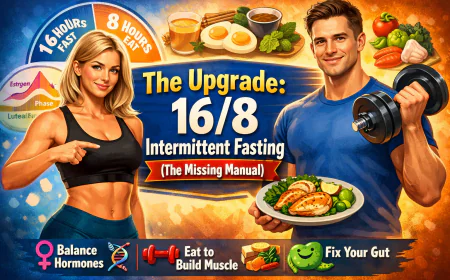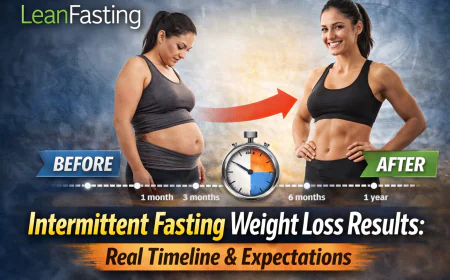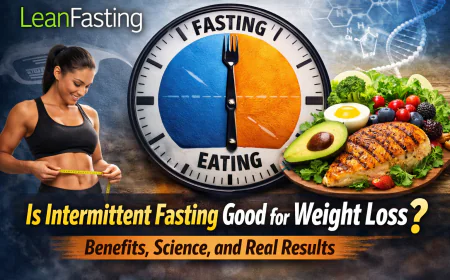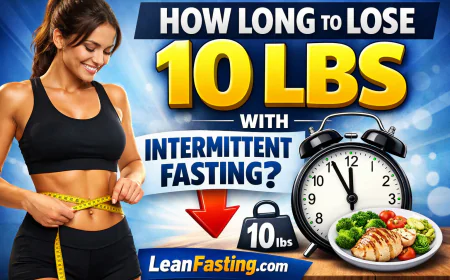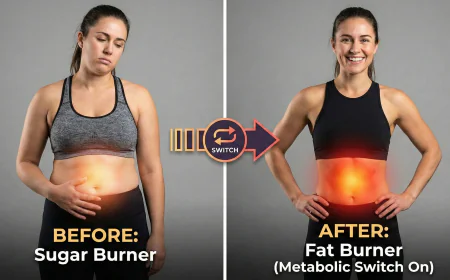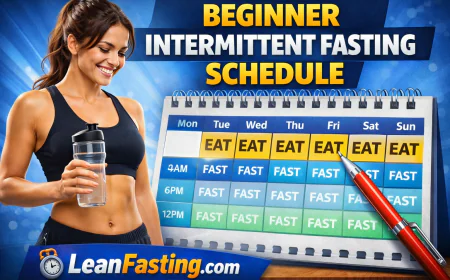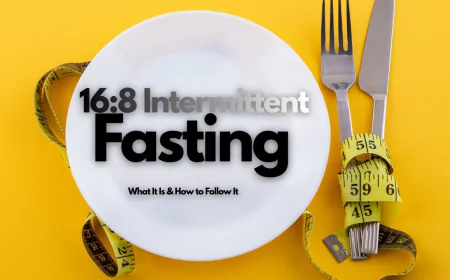Beginner Intermittent Fasting Schedule: Easy 7-Day Plan to Start Right
Discover an easy beginner intermittent fasting schedule! Follow this 7-day plan to gradually adapt, boost your energy, and achieve sustainable fat loss.

What is Intermittent Fasting?
Intermittent fasting (IF) isn’t about restricting what you eat; it’s focused on when you eat. It involves alternating cycles of eating and fasting, allowing your body to optimize fat burning, repair cells, and balance hormones naturally.
Popular Intermittent Fasting Methods
- 16/8 Method: Fast for 16 hours and eat during an 8-hour window.
- 5:2 Diet: Eat normally for five days and restrict calories for two days.
- Alternate-Day Fasting: Fast every other day.
Why a Beginner Needs a Proper Fasting Schedule
Starting intermittent fasting without preparation can lead to:
- Fatigue
- Headaches
- Irritability
- Dehydration
A structured schedule helps your body adapt gradually, minimizing side effects and setting you up for long-term success.
7-Day Beginner Intermittent Fasting Schedule
| Day | Fasting Method | Eating Window |
|---|---|---|
| Day 1–2 | 12/12 Fasting | 12 hours eating / 12 hours fasting |
| Day 3–4 | 14/10 Fasting | 10 hours eating / 14 hours fasting |
| Day 5–7 | 16/8 Fasting | 8 hours eating / 16 hours fasting |
Example Timing
- Start Eating: 10:00 AM
- Stop Eating: 6:00 PM (for 16/8 schedule)
Gradually tightening your eating window prevents your body from feeling shocked, making fasting more natural over time.
Top Tips for Beginners
- Stay Hydrated: Drink water, black coffee, or unsweetened green tea.
- Eat Balanced Meals: Focus on protein, healthy fats, fiber, and complex carbs.
- Avoid Overeating: Control your portions, even during eating hours.
- Listen to Your Body: If you feel dizzy or weak, adjust your fasting window.
- Be Patient: It usually takes 2–3 weeks for your body to fully adapt.
Common Mistakes to Avoid
- Skipping Meals Without Planning: Plan balanced meals ahead.
- Eating Junk Food: Fasting doesn’t mean you can indulge in unhealthy foods.
- Not Drinking Enough Water: Stay hydrated to avoid headaches and fatigue.
- Expecting Instant Results: Sustainable fat loss and health improvements take time and consistency.
Benefits of Intermittent Fasting
- Boosts metabolism
- Supports fat loss
- Improves insulin sensitivity
- Enhances mental clarity and focus
- Promotes cellular repair and longevity
By sticking to a beginner intermittent fasting schedule, you’ll slowly unlock these amazing benefits.
Conclusion
Starting intermittent fasting doesn’t have to be complicated. With this simple 7-day beginner intermittent fasting schedule, you can transition into fasting without overwhelming your body. Focus on consistency, healthy eating, hydration, and patience. Remember, intermittent fasting is a lifestyle change, not a quick fix.
Are you ready to boost your energy, improve your metabolism, and embrace a healthier lifestyle? Follow this 7-day plan and watch how your body and mind transform!
FAQs about Beginner Intermittent Fasting Schedule
Q1. What should I eat during my eating window?
Focus on nutrient-dense foods: lean proteins, vegetables, fruits, healthy fats (like olive oil and avocados), and whole grains. Avoid processed foods and added sugars.
Q2. Can I exercise while intermittent fasting?
Yes, but start with light activities like walking, yoga, or gentle strength training. As your body adapts, you can resume intense workouts.
Q3. Will I lose muscle with intermittent fasting?
If you consume adequate protein and strength train during your eating window, you can maintain or even build muscle while fasting.
Q4. How soon will I see results with intermittent fasting?
Some people notice improved digestion and energy within a week. For noticeable fat loss and body composition changes, expect 3–4 weeks of consistent practice.
Q5. Is intermittent fasting safe for everyone?
Not necessarily. Pregnant women, people with eating disorders, or those with certain medical conditions should consult a healthcare provider before starting intermittent fasting.
Want to explore another powerful intermittent fasting method?
Learn more about the Eat Stop Eat Intermittent Fasting Guide and see if it fits your lifestyle!

